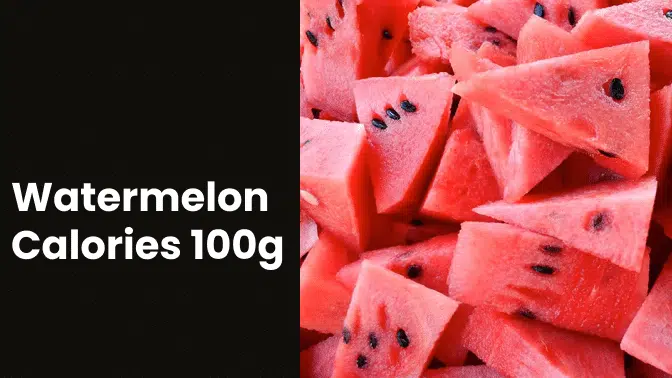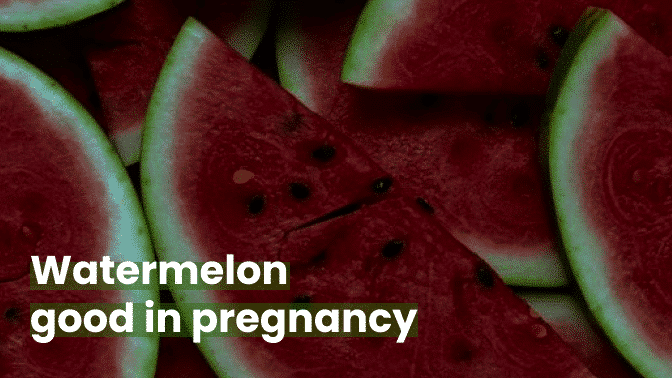Watermelon is a refreshing fruit that is enjoyed by many around the world. It is a summertime favourite due to its sweet and juicy flavour, but it also offers numerous health benefits. In this article, we will discuss the nutrition facts and health benefits of watermelon.
Nutrition Facts about Watermelon
Watermelon is low in calories and contains a high amount of water, making it a perfect fruit for those who are watching their weight. A 1-cup serving of diced watermelon contains:
- Calories: 46
- Carbohydrates: 11.6 grams
- Protein: 0.9 grams
- Fat: 0.2 grams
- Fibre: 0.6 grams
- Vitamin C: 12.5 mg (21% of the RDI)
- Vitamin A: 865 IU (17% of the RDI)
- Potassium: 170 mg (5% of the RDI)
Watermelon is also rich in other essential nutrients such as vitamin B6, thiamin, magnesium, and phosphorus. It is also a good source of lycopene, which is a powerful antioxidant that helps protect the body from cellular damage.
How many calories are in 100 grams of watermelon
The short answer is 30 calories.
In addition to being low in calories and protein, red watermelon is also a good source of fibre, which can help promote feelings of fullness and reduce the overall calorie intake throughout the day. Fibre also plays a crucial role in maintaining a healthy digestive system by preventing constipation and supporting the growth of beneficial gut bacteria.
Moreover, red watermelon is an excellent source of vitamin C, an essential nutrient that acts as an antioxidant in the body, protecting cells from damage caused by free radicals. Vitamin C also plays a vital role in collagen synthesis, which is essential for maintaining healthy skin, bones, and connective tissues.
Red watermelon is also rich in lycopene, a powerful antioxidant that gives it its vibrant red colour. Lycopene has been shown to have anti-inflammatory properties, which can help reduce the risk of chronic diseases such as heart disease, diabetes, and certain types of cancer.
In addition to its nutritional benefits, red watermelon is also a delicious and versatile fruit that can be enjoyed in many ways. It can be eaten on its own as a healthy snack, blended into smoothies, added to salads, or even grilled and served as a side dish.
With its low-calorie count and numerous health benefits, red watermelon is an excellent food choice for those looking to lose weight or maintain a healthy diet.
Health Benefits of Watermelon
Promotes Hydration
As mentioned earlier, watermelon is high in water content, making it an excellent food choice for promoting hydration. Eating watermelon can help replenish fluids lost through sweating, especially during hot weather or intense physical activity.
Improves Heart Health
Watermelon is an excellent source of citrulline, an amino acid that helps improve blood flow by relaxing blood vessels. This can lead to a reduction in blood pressure and a lower risk of heart disease.
Helps Boost Immunity
Watermelon is a good source of vitamin C, which helps strengthen the immune system by stimulating the production of white blood cells. These cells help fight off infections and diseases.
Reduces Inflammation
Watermelon contains anti-inflammatory compounds that help reduce inflammation throughout the body. This can be beneficial for individuals who suffer from conditions such as arthritis and asthma.
Supports Digestive Health
Watermelon contains a high amount of fibre, which is essential for maintaining healthy digestion. Fibre helps promote regular bowel movements and reduces the risk of constipation.
Promotes Skin Health
Watermelon is rich in vitamins A and C, both of which are essential for healthy skin. These vitamins help promote collagen production, which can help reduce the appearance of fine lines and wrinkles.
How to Incorporate Watermelon into Your Diet
Watermelon is a delicious and refreshing fruit that can be enjoyed in many ways. Whether eaten on its own or incorporated into meals and snacks, watermelon is a nutritious addition to any diet. Here are some ideas for incorporating watermelon into your diet:
- Watermelon Salad: Watermelon can be a tasty addition to a refreshing salad. Simply chop up some watermelon into bite-sized pieces and add it to a bed of mixed greens. Top with feta cheese, cucumber slices, and a balsamic vinaigrette dressing for a delicious and healthy summer salad.
- Watermelon Skewers: Cut watermelon into bite-sized cubes and place them on skewers with other fruits, such as strawberries and pineapple, for a colourful and nutritious snack.
- Watermelon Salsa: Mix diced watermelon, jalapeño peppers, red onion, and lime juice for a refreshing salsa that pairs well with grilled chicken or fish.
- Watermelon Smoothie: Blend watermelon with some ice and Greek yoghurt for a refreshing smoothie that is perfect for a hot summer day.
- Watermelon Sorbet: Freeze watermelon cubes and blend them into a sorbet for a healthy and refreshing dessert.
- Watermelon Juice: Blend watermelon cubes and strain the juice for a refreshing and hydrating beverage.
Watermelon is an excellent addition to smoothies and salads, adding a natural sweetness and a burst of flavour. Here are some recipes to try:
- Watermelon and Feta Salad:
- 2 cups of chopped watermelon
- 1/2 cup of crumbled feta cheese
- 2 cups of mixed greens
- 1/4 cup of chopped red onion
- 1/4 cup of chopped fresh mint
- 2 tablespoons of balsamic vinaigrette
Combine all ingredients in a large bowl and toss well to combine. Serve immediately.
- Watermelon Smoothie:
- 2 cups of chopped watermelon
- 1 cup of plain Greek yoghurt
- 1 cup of ice
- 1 tablespoon of honey
Blend all ingredients in a blender until smooth. Serve immediately.
Conclusion
Watermelon is a delicious and nutritious fruit that offers numerous health benefits. It is a low-calorie food that is high in water content, making it an excellent food choice for promoting hydration. It also contains essential nutrients such as vitamins A and C, which help support overall health and wellness. So the next time you want a sweet and refreshing snack, consider reaching for a slice of watermelon.
In summary, watermelon is a versatile and delicious fruit that can be incorporated into meals and snacks in a variety of ways. Whether enjoyed on its own or added to salads and smoothies, watermelon is a nutritious and refreshing addition to any diet.



